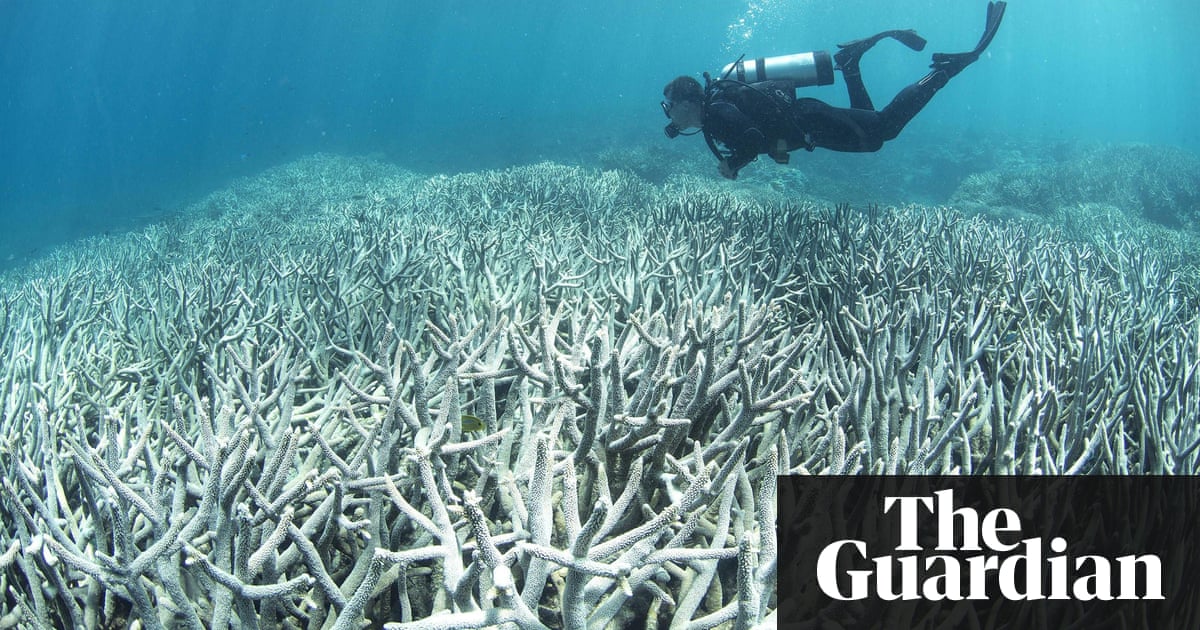
60.5% of World’s Coral Reefs Have
Bleached in Past Year, NOAA Says
Cristen Hemingway Jaynes / EcoWatch
(May 21, 2024) — In the past year, nearly two-thirds of the coral reefs on the planet have been exposed to enough heat stress to trigger bleaching, the United States National Oceanic and Atmospheric Administration (NOAA) said on Thursday, reported Reuters.
Last month, NOAA announced that coral reefs are experiencing a fourth global bleaching event, with El Niño and climate change combining to bring record high ocean temperatures.
“I am very worried about the state of the world’s coral reefs,” said Derek Manzello, coordinator for NOAA’s Coral Reef Watch, as Reuters reported. “We are seeing (ocean temperatures) play out right now that are very extreme in nature.”
Coral bleaching happens when warm ocean surface temperatures cause the colorful algae that live in the tissues of corals to be expelled. Without the symbiotic benefits of the algae, corals turn pale and become vulnerable to disease and starvation.
The current worldwide bleaching event is the second in the past decade, a press release from NOAA said.
“From February 2023 to April 2024, significant coral bleaching has been documented in both the Northern and Southern Hemispheres of each major ocean basin,” Manzello said in the press release.
Since early last year, mass coral bleaching has been confirmed in the Caribbean, Florida, Brazil, Australia’s Great Barrier Reef, the eastern Tropical Pacific, large swaths of the South Pacific, the Gulf of Aden, the Red Sea, the Persian Gulf and other areas of the Indian Ocean.
“As the world’s oceans continue to warm, coral bleaching is becoming more frequent and severe. When these events are sufficiently severe or prolonged, they can cause coral mortality, which hurts the people who depend on the coral reefs for their livelihoods,” Manzello added.
Mass coral bleaching has been documented in at least 62 nations and territories, reported Reuters.

Coral bleaching of Australia’s Great Barrier Reef.
During the previous global event — from 2014 to 2017 — 56.1 percent of coral reefs were subjected to heat stress sufficient to cause bleaching. Another event in 2010 affected 35 percent of reef area, while the first worldwide bleaching in 1998 struck 20 percent of reefs.
“Climate model predictions for coral reefs have been suggesting for years that bleaching impacts would increase in frequency and magnitude as the ocean warms,” said Jennifer Koss, NOAA’s Coral Reef Conservation Program director, according to NOAA.
NOAA noted that Atlantic Ocean corals have been most affected by rising ocean temperatures. Nearly all — 99.7 percent — of the reefs in the basin have been subjecting to heat stress leading to bleaching over the last year, Reuters reported.
Corals are likely to suffer more this summer, with the Southern Caribbean already accumulating heat stress at bleaching levels in some areas.
“This is alarming because this has never happened so early in the year before,” Manzello said, as reported by Reuters. “El Nino is dissipating, but the ocean is still anomalously hot. It won’t take much additional warming to push temperatures past the bleaching threshold.”
Posted in accordance with Title 17, Section 107, US Code, for noncommercial, educational purposes.